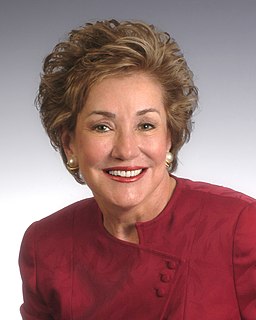This article is being considered for deletion in accordance with Wikipedia's deletion policy. Please share your thoughts on the matter at this article's entry on the Articles for deletion page. |
Cynthia D. Brown was a Durham, North Carolina City Councilwoman and Candidate for U.S. Senate in 2002. Brown died November 14, 2016. She was 58.

Durham (/ˈdʌrəm/) is a city in and the county seat of Durham County in the U.S. state of North Carolina. Small portions of the city limits extend into Orange County and Wake County. The U.S. Census Bureau estimated the city's population to be 274,291 as of July 1, 2018, making it the 4th-most populous city in North Carolina, and the 79th-most populous city in the United States. The city is located in the east-central part of the Piedmont region along the Eno River. Durham is the core of the four-county Durham-Chapel Hill Metropolitan Area, which has a population of 542,710 as of U.S. Census 2014 Population Estimates. The US Office of Management and Budget also includes Durham as a part of the Raleigh-Durham-Chapel Hill Combined Statistical Area, commonly known as the Research Triangle, which has a population of 2,037,430 as of U.S. Census 2014 Population Estimates.

The United States Senate is the upper chamber of the United States Congress, which, along with the United States House of Representatives—the lower chamber—comprises the legislature of the United States. The Senate chamber is located in the north wing of the Capitol Building, in Washington, D.C.
Contents
Cynthia Brown was born in Reidsville, North Carolina. She received her bachelor's degree in Political Science from Bennett College and a master's degree in Public Affairs from UNC-Greensboro. [1]

Reidsville is a city in Rockingham County, North Carolina, United States. At the 2010 census, the city had a total population of 14,520.

Bennett College is a private historically black liberal arts college for women in Greensboro, North Carolina. It was founded in 1873 as a normal school to educate freedmen and train both men and women as teachers. Originally coed, in 1926 it became a four-year women's college. It is one of two historically black colleges that enroll only women. It served roughly 470 undergraduate students at the time.

The University of North Carolina at Greensboro, also known as UNCG and UNC Greensboro, is a public coeducational and Research university in Greensboro, North Carolina, United States and is a constituent institution of the University of North Carolina system. However, UNCG, like all members of the UNC system, is a stand-alone university and awards its own degrees. UNCG is accredited by the Southern Association of Colleges and Schools Commission on Colleges to award baccalaureate, masters, specialist and doctoral degrees.
Brown came in fourth out of the nine candidates in the Democratic Primary for the Senate seat behind former White House Chief of Staff Erskine Bowles, State Representative Dan Blue and North Carolina Secretary of State Elaine Marshall. [2]

The Democratic Party is one of the two major contemporary political parties in the United States, along with its main rival, the Republican Party. Tracing its heritage back to Thomas Jefferson and James Madison's Democratic-Republican Party, the modern-day Democratic Party was founded around 1828 by supporters of Andrew Jackson, making it the world's oldest active political party.

The White House Chief of Staff position is the successor to the earlier role of the President's private secretary. The role was formalized as the assistant to the president in 1946 and acquired its current title in 1961. The current official title is Assistant to the President and Chief of Staff.

Erskine Boyce Bowles is an American businessman and political figure from North Carolina. He served from 2005 to 2010 as the president of the University of North Carolina system. In 1997–98 he served as White House Chief of Staff and he also ran unsuccessfully for the United States Senate from North Carolina in 2002 and 2004.
Brown served on the Greensboro Truth and Reconciliation Commission, the Resourceful Communities Program and The Heirs Project. She was the founder/consultant for The Sojourner Group.
The Greensboro massacre is the term for the killing of five protesters by members of the Ku Klux Klan and the American Nazi Party (ANP) during a Communist Workers' Party march against the Klan on November 3, 1979 in Greensboro, North Carolina. The march had been preceded by inflammatory rhetoric from both sides, and the city police department had been informed that the Klan planned armed violence. While supporting the predominantly black labor activists in the discriminatory textile industry, the CWP was attempting to expel the Klan from the city.
The Conservation Fund is an American environmental non-profit with a dual charter to pursue environmental preservation and economic development. Since its founding in 1985, the organization has protected more than 7 million acres of land and water in all 50 states, including parks, historic battlefields, and wild areas. The Fund works with community and government leaders, businesses, landowners, conservation nonprofits and other partners to create innovative solutions that integrate economic and environmental objectives. The Fund also works with communities to strategically plan development and green space and offer training in conservation and the sustainable use of natural resources.











